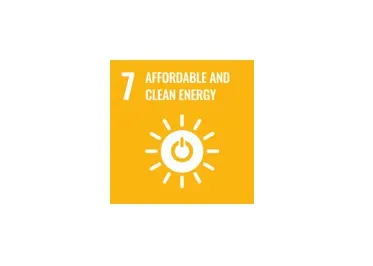Publish with the Elsevier Energy Books Team
Energy with Purpose
The Elsevier Energy Books Team's commitment is to only commission content that supports and advances the energy transition and the reduction of CO2 emissions, to meet the world’s energy needs whilst protecting our planet for future generations.

Our Mission
At Elsevier, we are using data combined with content and subject expertise to gain unique insights into how research can accelerate efforts to mitigate the effects of climate change. As a company, we are committed to the rapid reduction of greenhouse gas emissions, aiming to achieve net zero emissions before 2050. The transformation of power systems and integration of renewable sources are critical drivers in achieving pathways to net zero.
We aim to accelerate the energy transition through the development of critical new book resources that consolidate and advance research and practice, directly contributing to the emerging sustainable smart energy system of tomorrow. Being an advocate and partner for sustainable advances, we ask ourselves how can we help our authors and readership lead the change toward a cleaner, safer environment for all?
Publish with Us
Edward Payne Senior Acquisitions Editor Renewable Energy, Solar Energy, Wind Energy, Energy Transition
Ruchi Bhardwaj Acquisitions Editor Bioenergy & Biofuels, Waste-to-Energy, Marine Energy & Hydropower, Energy Efficiency & Management
Ambika Kapoor Acquisitions Editor Energy Storage, Hydrogen, Fuel Cells
Dan Egan Acquisitions Editor Power Electronics, Energy Systems, Power Plants, Sustainable Transport, Sustainable Built Environment
Fran Kennedy-Ellis Senior Acquisitions Editor Geothermal & Thermal Engineering, Carbon Capture, Utilization & Storage, Subsurface Energy Storage, Energy Research in Social Sciences
Priscilla Braglia Publisher Nuclear Energy, Energy Economics, Finance & Policy
We invite you to join a community of world-renowned thought leaders who have partnered with us. The Energy Books Team are passionate about the role that book content can play in accelerating the transition to a more sustainable and carbon neutral environment, and in supporting the researchers, students, and institutions working to get us there.
When you partner with Elsevier, you will work with a dedicated team of professionals to create content that is optimized for use. Our book publications include reference books, handbooks, textbooks, and major reference works, and cater to multiple print and online formats, including publication on our leading full-text scientific database ScienceDirect, which reaches more than 16 million users worldwide. When appropriate, books are also submitted to Scopus, the largest abstract and citation database of peer-reviewed literature.
If you are interested in publishing new energy books suitable for research, learning, or professional practice, contact the relevant Acquisitions Editor for your specific subject area, or download and submit our new book proposal form. We will be delighted to hear from you.
New and Forthcoming Books

Photovoltaic Device Physics and Materials, Third Edition
Authored by Stephen J. Fonash Publishing in December 2025
Photovoltaic Device Physics and Materials: Solar Cell, Photovoltronic, and Sensor Structures, Third Edition, is a comprehensive update to a classic text (previously Solar Cell Physics), reflecting how the physics behind these important photovoltaic applications is the same, while device structure, designs, and materials used to optimally implement the physics varies, and including latest advances across these areas.
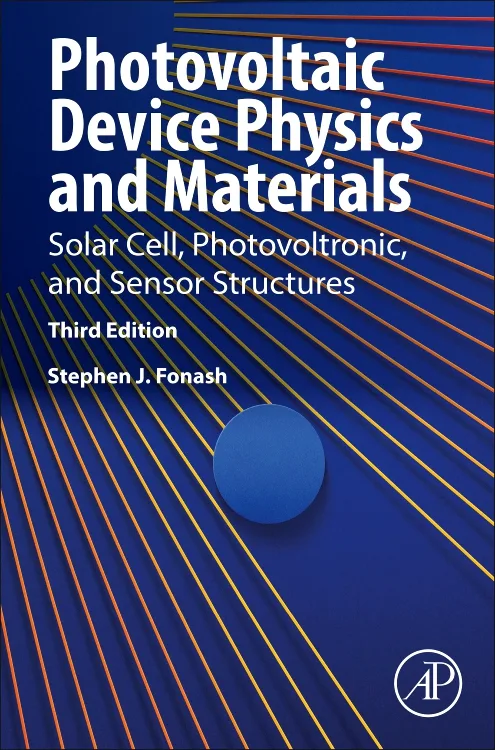
Photovoltaic Device Physics and Materials, Third Edition
Biogas in the Circular Economy
Edited by Hassan El Bari & Abdellatif Barakat Published in August 2025
Biogas in the Circular Economy: Technology, Production and Applications explains biogas technology in the context of a circular economy, allowing for zero waste by valorizing digestate (residue) in a sustainable way. The book presents advanced anaerobic digestion and dark fermentation technology for biomethane and biohydrogen production, and latest technologies in biogas separation and purification.
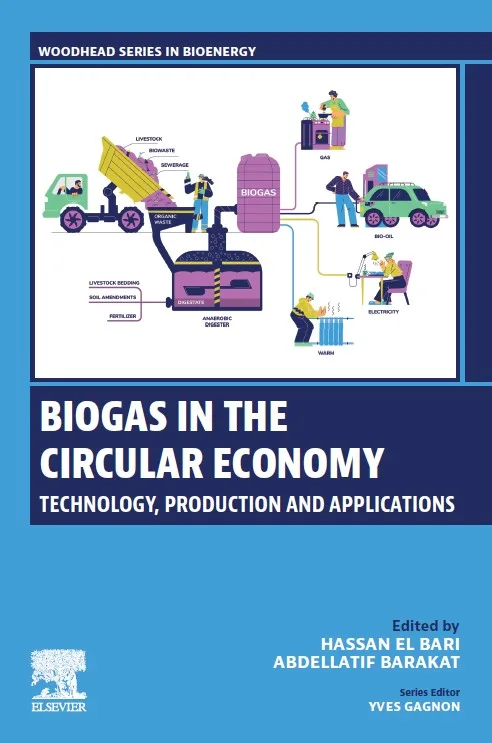
Biogas in the Circular Economy
Multifunctional Solar Chimney
Authored by Long Shi Published in June 2025
Multifunctional Solar Chimney: From Idea to Practice is the first book on multifunctional solar chimneys that integrates energy saving and fire safety, and covers fundamental influencing factors and optimization design, theoretical deduction of both heating and cooling modes, the impacts of wind environments, applications and fulfillment of WHO requirements, idea validation, and applications of in buildings and tunnels.

Multifunctional Solar Chimney
Energy and Climate Change
Edited by Trevor Letcher & Vasilis M. Fthenakis Published in March 2025
Energy and Climate Change: Our New Future provides a complete understanding of future energy, energy transition, and climate change, and the connections between them. This new handbook reviews current options and future pathways in the transition to non-fossil fuel energy systems and also explores how various renewable energy options are affected by climate change.
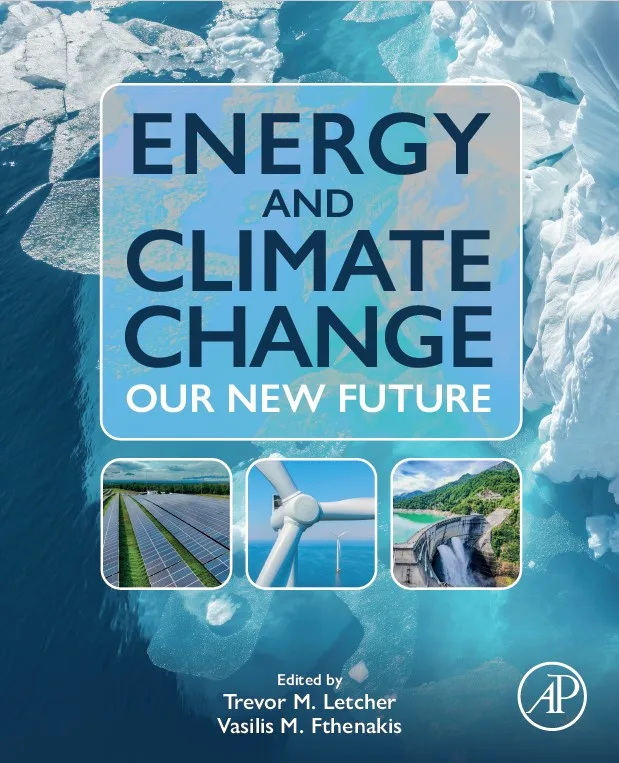
Energy and Climate Change
Powering through the Transition
Authored by Michael Deighton Published in November 2024
Powering through the Transition: Navigating the Energy Sector’s Biggest Change since the Discovery of Oil gives today’s companies a plan to thrive in low carbon energy markets, delivering key principles to achieve performance excellence, utilizing cutting-edge tools and techniques around lean, visual management, scrum, agile and margin improvement methods, and offering practical examples.
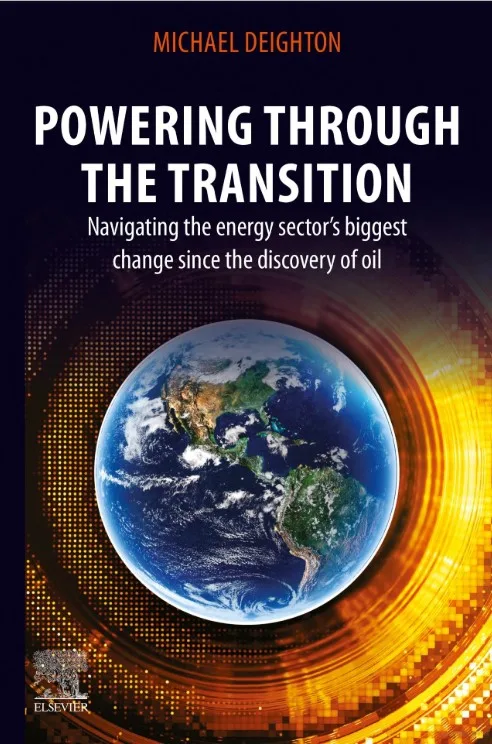
Powering through the Transition
Solar Energy Technologies in Cultural Heritage
Edited by Elena Lucchi Published in November 2024
Solar Energy Technologies in Cultural Heritage offers a comprehensive overview of the possibilities, developments, innovations, and challenges in solar energy for cultural heritage applications, bridging the traditional boundaries between research, professional practices, and policies, as well as between arts, architecture, engineering, and social science, and opening new opportunities for active solar energy systems in buildings, towns, and landscapes.
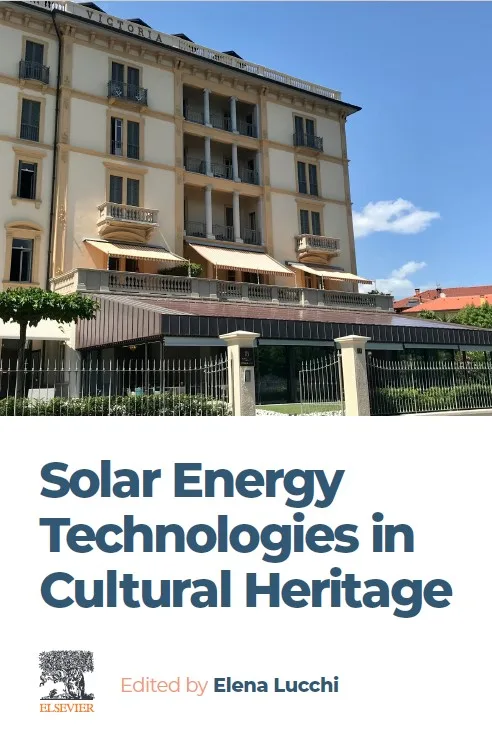
Solar Energy Technologies in Cultural Heritage
Geothermal Power Generation, Second Edition
Edited by Ronald DiPippo, Luis Carlos Gutiérrez-Negrín & Andrew Chiasson Published in October 2024
Edited by respected and leading experts in the field, Geothermal Power Generation: New Developments and Innovations, Second Edition, provides an updated and comprehensive overview of the major aspects of geothermal power production, covering resource discovery, resource characterization, energy conversion, design, economic considerations, and a range of case studies from across the world.
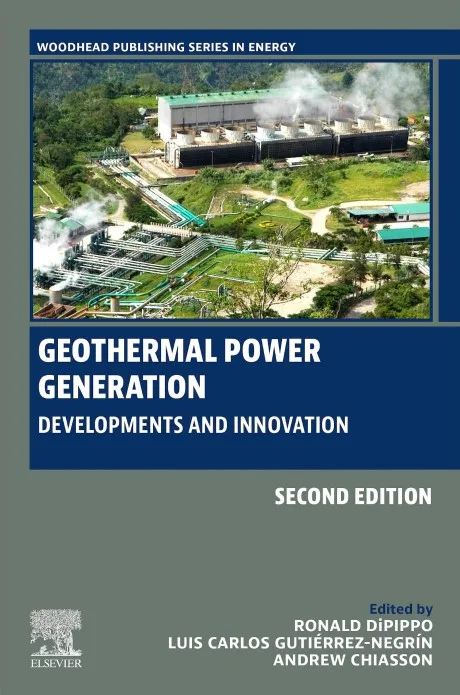
Geothermal Power Generation, Second Edition
Book Series
Our Book Series offer curated collections of books on important and emerging topics in a specific field. These are developed alongside – and overseen by – external subject experts, usually in the form of a Series Editor or an Editorial Board.
Elsevier Wind Energy Engineering Series

Other Initiatives
COP30, November 2025: "Building a Sustainable Future Through Energy Innovation" is the new episode of our RELX The World We Want podcast series, in support of COP30, and features Klaus Brun, Vice President of Products and Technology at Ebara Elliott Energy and co-editor of six Elsevier books, including Energy Transport Infrastructure for a Decarbonized Economy (2024) and the forthcoming Surface Systems for Geothermal Energy Plants (2026). Listen to the episode here.
COP30, November 2025: Elsevier has curated a free-to-access special collection, hosted on the RELX SDG Resource Centre, featuring over 90 journal articles and book chapters, with topics including energy and climate change, sustainable smart cities, agriculture, hydrogen, transportation, nanomaterials, microalgae, solar energy, and more. Explore the collection here.
March 2025: Elsevier officially became an Ally to the Women in Solar+ Europe (WiSEu) Network, aiming to help to improve visibility, to increase representation and leadership, and to highlight the contributions of women in solar energy and renewable energy.
